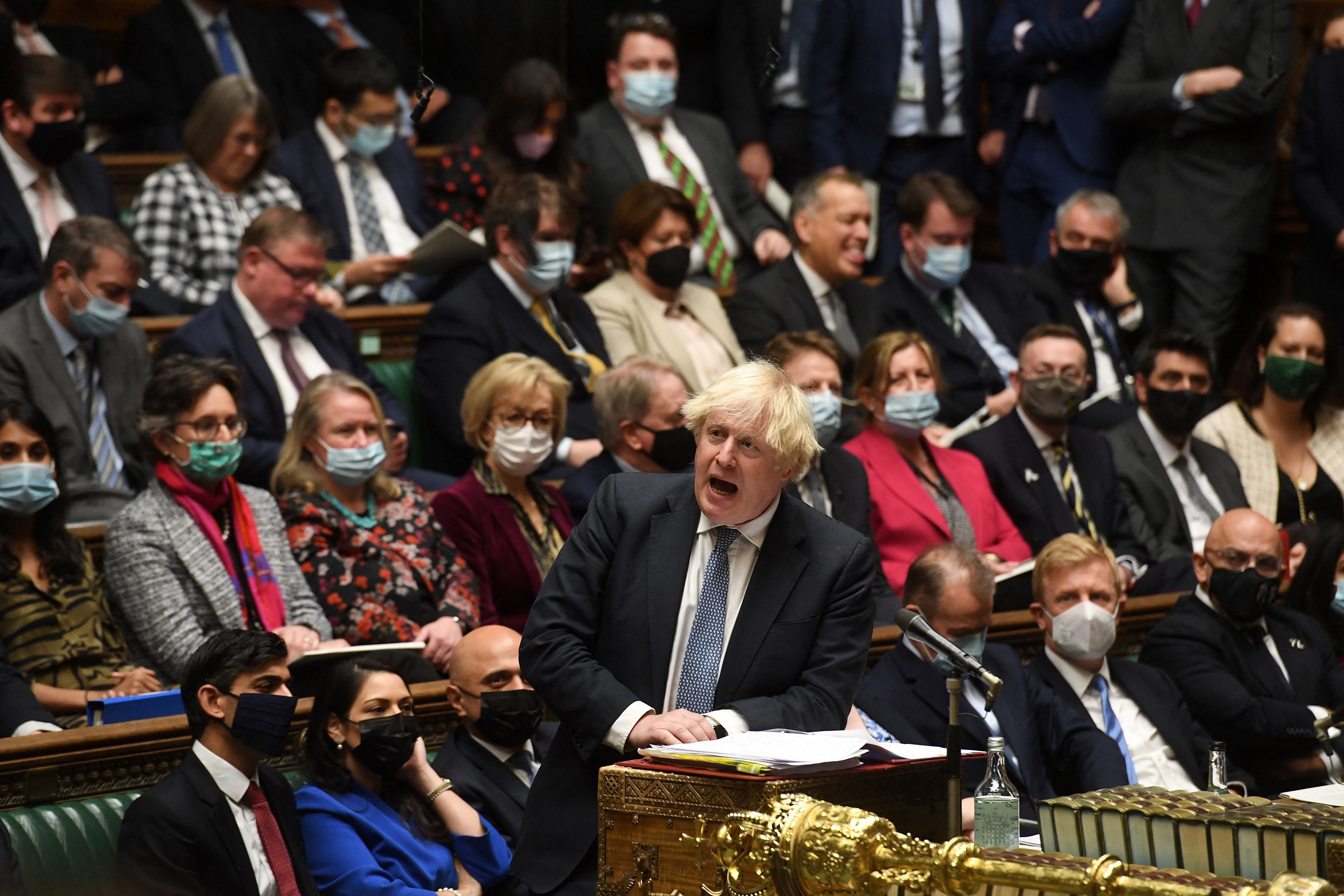When the benchers bite back
Boris Johnson must answer to unruly MPs who will sacrifice their leader to maintain power, writes Sean O’Grady


Even after the political week from hell, it’s a simple question that, curiously, Boris Johnson seems disinclined to ask: what do his troublesome backbenchers actually want?
One obvious answer, and an equally unwelcome one, is “not you, mate”. There is now a solid constituency of Tory MPs who, even if they ever had any time for Boris Johnson, have exhausted what little patience they had. Some, maybe the likes of Desmond Swayne and Steve Baker, are repulsed by the prime minister’s mixture of incompetence and lack of political consistency. They tend to be libertarians, as opposed to liberals, and an issue such as so-called vaccine passports is guaranteed to boil their blood. The experience of the pandemic has confirmed their doubts about whether Johnson is indeed one of their kind, notwithstanding his record when a journalist of supporting freedom in its most comprehensive sense. They see a man who once pledged to eat an identity card in front of any state official bold enough to ask him to produce it on demand turning into the very kind of statist who would impose such strictures on free-born Englishmen and Englishwomen; that sort of vibe. Perhaps the purest example of the breed would be Marcus Fysh, who has apologised for comparing plan B with Nazi Germany.
A second group seems to be the class of 2019, oddly enough given that it was Johnson who delivered some of them their formerly rock-solid seats at the last general election. Many of them are of a very different social and political outlook to the older tradition of squire and shire Tories, epitomised in such now prominent figures as Owen Paterson and Sir Geoffrey Cox. Unlike Jacob Rees-Mogg, and indeed Johnson, many speak little, if any, Latin. An example of this group might be Dehenna Davison, MP for Bishop Auckland since 2019, representing a seat that had been Labour since its creation in 1885. People such as Davison may be glancing at Liz Truss as the kind of leader who shares their values, though Truss is remarkably featureless politically. It’s a mistake to see this new breed of Tories as wanting the same sort of things as Labour; they are more likely to be small-state Thatcherites. Some will reflect a more culturally and conservative outlook than the old Notting Hill set so dominant in the Cameron-Osborne era, who were more libertine than libertarian (see also Michael Gove and Johnson himself). They wanted levelling up, for sure, and they’ve seen little sign of it, and the failure to push HS2 towards Leeds and beyond will have added to their despondency.
Then there are the economic fundamentalists and disappointed Brexiteers, people such as Philip Davies, who regards Johnson as a socialist. As ever, there are the dispossessed and never-possessed, as John Major called his enemies, who are bitter about being sacked by Johnson, or overlooked for rehabilitation or promotion. Some might see Esther McVey and Mark Harper as specimens of such thwarted ambition/wasted talent. Others, such as Edward Leigh, are also exercised by the refugee crisis. A small group, typified by Karen Bradley and Damian Green are the remnants of Theresa May’s administration, marginalised since her ousting, and dismayed by Johnson’s lazy, feckless, cavalier attitude.
So there are many overlapping groups, each motivated by a cocktail of failings, real or perceived, in Johnson’s leadership. Some demand mutually exclusive things such as tax cuts as well as greater regional spending on infrastructure, say, encouraged by Johnson’s own “cakeism”. Mostly, though, they have a lot in common, and represent the libertarian, small-state right of Johnson frustrated by all the avoidable errors and the way that the pandemic has derailed the government and bloated its spending and debt. Among the activists, who will have the final say on the last two leadership contenders, the hard right has been the dominant political variant for a very long time.
Johnson used to be able to transcend such divisions because Brexit dominated everything, and he was the man to get it done; and because he was perceived as the only one who could win the Conservatives a working majority at a general election and beat Jeremy Corbyn. Then the pandemic emergency suspended much of normal political life. Now the context has changed radically, Labour is recovering its composure under Keir Starmer, and Johnson is no longer such an obvious electoral asset. The sleaze and the mistakes are helping to convince many Tory MPs that there are others who could better preserve the most important prize of all – power. They may be deluded, because there aren’t easy answers to any of their complaints, but there will be no shortage of senior figures quietly promising them to make the impossible possible, just as Johnson himself once did after he resigned from May’s cabinet. The political cycle is turning again.



Join our commenting forum
Join thought-provoking conversations, follow other Independent readers and see their replies
Comments